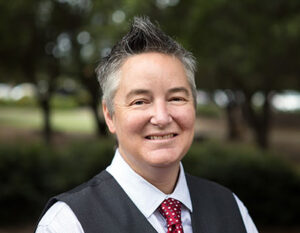
Photo by: Wayne Vanderkuil
“Here we shall offer shelter for the search for knowledge to all those who come, at any age, to join in that search. And the only loyalty test we shall impose is that of loyalty to learning.” —MIT President Jerome Wiesner’s inaugural address, October 7, 1971
I was struck recently as I read in the Institute Archives Jerome Wiesner’s words from 45 years ago; they couldn’t be more resonant today. They speak to the unique culture of MIT and what President L. Rafael Reif calls “a meritocratic openness to talent, culture, and ideas from anywhere.” They also capture the essence of libraries and our values. In our ambitious plans for the future and in the work we do every single day, we strive to be inclusive and welcoming, to fuel discovery and learning, and to push toward more equitable access to information.
The Future of Libraries Task Force’s vision for the library as an open global platform is a call for people everywhere to join in the search for—and creation of—knowledge. In our preliminary report, we wrote that we hoped to inspire hacks in the great MIT tradition of using ingenuity and teamwork to create something remarkable. In this issue of Bibliotech, we’re highlighting some of our technology experiments, collections, and initiatives that exemplify this spirit—from capturing geospatial data with drones to an artist’s reimagining of Moby Dick. I hope you’ll find them as inspiring as I do.
Last year at commencement, President Reif encouraged MIT’s graduates to “hack the world,” urging them to make it more like MIT: open, inventive, bold, generous, and kind. I think the library we envision is critical to that kind of world. So, let’s hack the library. Will you join us?
All the best,

Chris Bourg

